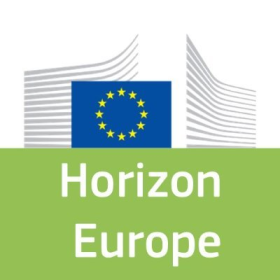Rychlý kontakt
Náměstek pro vědu a výzkum
Tel:+420 221 977 305
Zástupkyně náměstka
Tel:+420 221 977 648
Sekretariát
Tel:+420 221 977 144
Ústav hematologie a krevní transfuze

| Identifikátor: | HORIZON-MISS-2024-CANCER-01-03 |
|---|---|
| Rozpočet: | 35 000 000 € |
| Typ: | Jednokolová |
| Datum otevření: | 18. 4. 2024 |
| Datum uzavření: | 18. 9. 2024 |
Výzva pro projekty zaměřené na validaci, zavedení a rozšiřování genetických, multi-omických nebo jiných testů založených na biomarkerech pro včasnou detekci rakoviny.
Typ žadatele: Konsorcia
Předpokládaný rozpočet projektu: 10 - 12 mil. €
Expected Outcome:
For an increasing number of cancers with underlying heritable genetic risk, early detection and diagnosis are possible. Moreover, cancer incidence and mortality across Europe are increasing and show substantial variation, with Central and Eastern European regions and countries particularly affected. Decisive action on early detection using easy-to-use, specific and sensitive, affordable and accessible genetic multi-omics or other biomarker-based tests will contribute to diagnosing and treating cancer with an underlying heritable genetic risk at an earlier, potentially curable stage, and with fewer side-effects.
Proposals should aim to deliver results through validating, piloting, and upscaling genetic, multi-omics, or other biomarker-based tests for early detection of cancers with underlying heritable genetic risk in routine healthcare, which are directed and tailored towards and contribute to all of the following expected outcomes:
Scope:
There is a need to validate, pilot, and upscale easy-to-use genetic, multi-omics or other biomarker-based tests for early detection of cancers with an underlying heritable genetic risk, for uptake in regional or national healthcare systems. Proposals should address all of the following:
This topic requires the effective contribution of Social Sciences and Humanities (SSH) disciplines and the involvement of SSH experts, institutions as well as the inclusion of relevant SSH expertise, in order to produce meaningful and significant effects enhancing the societal impact of the related research activities.
Successful results are expected to be communicated to the Knowledge Centre on Cancer (KCC)to foster their uptake within the EU.
The Commission will facilitate coordination. Therefore, successful proposals will be asked to join the 'Prevention and Early Detection' cluster for the Mission on Cancer established in 2022 and should include a budget for networking, attendance at meetings, and potential joint activities without the prerequisite to give details of these at this stage. Examples are: organising joint workshops, establishing best practices, joint communication or citizen engagement activities with projects funded under other clusters and pillars of Horizon Europe, or other EU programmes, as appropriate. The details of joint activities will be defined during the grant agreement preparation phase and during the life of the project.
Náměstek pro vědu a výzkum
Tel:+420 221 977 305
Zástupkyně náměstka
Tel:+420 221 977 648
Sekretariát
Tel:+420 221 977 144
Ambulance
Po – Pá:
7:00–18:00
Denní nemocnice
Víkendy:
9:00–13:00
Dárci
Po – Pá:
7:00–10:30
Návštěvy
Lůžkové oddělení
Po – Pá:
13:00–18:00
JIP a Transplantační jednotka
Po – Pá:
14:00–17:00

Ústav hematologie a krevní transfuze
U Nemocnice 2094/1
128 00 Praha 2
Nejbližší stanice metra: Karlovo náměstí (linka B)
Nejbližší stanice tramvaje: Karlovo náměstí (10, 16, 22), Moráň (3, 6, 10, 16, 18, 24)
Nejbližší stanice autobusu: U nemocnice (148), Karlovo náměstí (176)